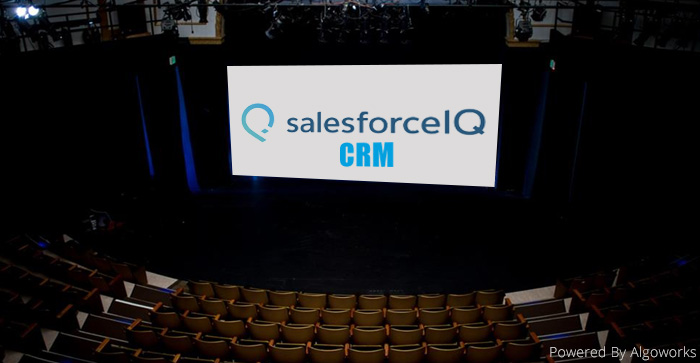
2023 CRM Landscape: A Deep Dive into Salesforce vs Microsoft Dynamics
Business rivalry with healthy competition is quite common among all industries. It eliminates monopoly and gives more options to choose for users. When it comes to CRM, there are quite a few players however, everyone looks to compare Salesforce vs Microsoft Dynamics 365 while selecting the best one for themselves.
Salesforce and Microsoft Dynamics are equally capable and provide suitable solutions for various business needs, including sales tracking, lead ranking, and customer case management. So, which one is best for your organization? Let's break down these platforms based on specific parameters and help you decide.
“Choosing between Salesforce and Microsoft Dynamics: it's not just about the software, it's about your business strategy.”
Salesforce vs Microsoft Dynamics - Major Differences On Key Points
The whole concept of comparison of Salesforce with Microsoft Dynamic needs to be corrected. Both deliver excellent value addition to the businesses. Still, we’ve found some aspects where they differ from each other.
Deployment
Microsoft Dynamics 365 and Salesforce allow users to access their data from anywhere, thanks to their cloud capabilities. However, as Salesforce is specifically created for the cloud, it is better optimized to work seamlessly in that environment.
This makes it more reliable for businesses that prefer cloud-based solutions. On the other hand, Microsoft Dynamics 365 provides better flexibility through cloud, on-premise, and hybrid models. So businesses having unique needs can prefer it, especially those having multiple touchpoints in complex buying and purchasing cycles.
![]() Don't forget to check out: Switching from MS Dynamics to Salesforce | Learn Here
Don't forget to check out: Switching from MS Dynamics to Salesforce | Learn Here
Market Presence and Reputation
We don’t think anyone will have difficulties choosing Salesforce or Microsoft CRM on this parameter. Both are equally reputed with a significant market presence. Established in 1999, Salesforce is widely recognized as a leader in CRM solutions, with around 28 % of the market share.
Microsoft launched Dynamics in 2003 and gained substantial traction over other CRM providers like Oracle, SAP, and Adobe. With Microsoft's brand power, it has become a competitive player in the CRM market.
Integration Capabilities
When you choose between Salesforce and Dynamics 365, you're not just investing in software – you're diving into a world of two different ecosystems with many possibilities and added benefits.
If you’re already using Microsoft products such as PowerBI, Outlook, Microsoft 365, LinkedIn, Power Automate, and Power Apps, opting for Dynamic 365 is the best bet, as you get a treasure trove of add-ons and integrations.
With seamless integration within Microsoft or the customizable best-in-class approach, Salesforce empowers your business in various ways. In short, Dynamic 365 is best for seamless integration within the Microsoft universe or and Salesforce is for those looking for a customizable, best-in-class approach. So, both Salesforce and Microsoft Dynamics integration with other products is quite impressive.
Pricing Structure
As a business, you incur costs not just by choosing the subscriptions for CRM; you need to spend on implementation, customization, training, maintenance, and other add-ons.
Both Salesforce and Microsoft Dynamic offer monthly subscriptions, which latter is slightly cheaper than the former. However, when you consider the total annual cost for multiple users and purchasing subscriptions for other products from Microsoft, such as Team, Outlook, etc., Dynamics 365 gets dearer.
You also have the flexibility to customize your solution by adding other applications from the Dynamics 365 portfolio or Salesforce, often at discounted prices.
Automation and AI Capabilities
Salesforce vs Microsoft Dynamics stands out in the CRM market due to their advanced AI and automation features by investing in or acquiring AI tools. Microsoft integrates AI tools precisely in the Sales and Service modules for natural language parsing and intelligent sales predictions for better speed and efficiency in business applications.
Salesforce implementation offers AI learning algorithms called “Salesforce Einstein AI”, to understand each company's unique selling patterns and suggest improvements. It is empowered to provide answers to customer inquiries and guide marketers toward more effective strategies in service and marketing campaigns. The Salesforce flawlessly integrates with Einstein though you need to pay an additional cost.
Features and Functionality
In a discussion on Salesforce vs. Dynamic, the latter needed improvement functionality that changed after the acquisition of LinkedIn and a significant update in 2015. Dynamic 365 assists the team with automated features and Artificial Intelligence (AI) to manage customers effectively.
You can determine the best time to send emails and keep an eye on social media platforms to stay informed. On the other hand, Salesforce outshines Dynamics through the Data government tool, partner management, KPI monitoring, built-in feedback loops, and rewards tools. You better manage and incentivize sales achievements with the help of Salesforce development companies.
![]() Check out another amazing blog by Algoworks here: Achieving Your Business Goals through Salesforce Customization: A Step-by-Step Guide
Check out another amazing blog by Algoworks here: Achieving Your Business Goals through Salesforce Customization: A Step-by-Step Guide
Which One To Choose In Salesforce vs Microsoft Dynamics?
Both tools are leading platforms that ultimately put the onus on the companies to determine which is best for them.
While Microsoft Dynamics 365 CRM may have a slightly higher implementation cost at a basic level, the overall cost becomes comparable when scaling up.
Dynamics 365 excels in reporting capabilities, although it's customization abilities and user-friendly UI require further improvement to make it on par with Salesforce. If you need an on-premises deployment, Microsoft Dynamics 365 is the only option, as Salesforce operates exclusively in the cloud.
On Salesforce vs Microsoft Dynamics, you should consider your existing business systems, the specific features your team needs to succeed, and the budget you're willing to allocate, and then choose the best one.
“In the grand chessboard of CRM, will your next move be Salesforce or Microsoft Dynamics?”




Responses